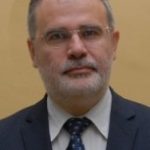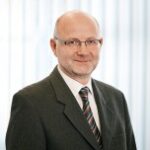2022 RSA Central and Eastern Europe Conference Plenary Speakers
See below for information on our 2022 CEE conference plenary speakers. Watch this space for further updates and receive all the latest updates by following #CEE22 on Twitter.
Wednesday 14th September 2022, 13:00-13:30
Welcome to the Conference
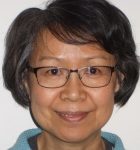
Jessie P.H. Poon is Professor of Geography at the University at Buffalo, New York. She is currently an editor of Environment and Planning A. She was the North American editor of Papers in Regional Science from 2002 to 2006. She has published over 100 papers on multinational firms’ locational strategies, foreign direct investment, trade, and technological upgrading dynamics in Asia.
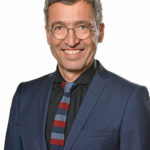
Education
- 1981 – 1988 Study of spatial planning: graduate engineer
- 1988 – 1993 Qualification in Administrative Law/ City Planning and Construction: graduation
Career
- 1993 City planner in different planning offices
- 1994 – 2001 City of Northeim: Head of the Office for Spatial Planning and Construction Regulations
- 2001 – 2004 City of Göttingen: Head of the Office for Spatial Planning,
- 2004 – 2020 City of Göttingen: Head of Department for Planning, Construction and Environment
- Since 2020: City of Leipzig: Deputy Mayor for City Development and Construction
Prof. Dr. Matthias Middell ist Professor für Kulturgeschichte und Direktor des Global and European Studies Institute sowie Sprecher des SFB 1199 und des Leipzig Research Centre Global Dynamics. Seit 1991 gibt er die Zeitschrift Comparativ. Journal of Global History heraus. Seit 2O15 ist er Vorstandsmitglied des Comité International des Sciences Historiques.
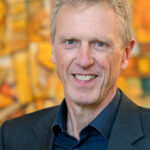
Prof. Dr Sebastian Lentz is Director of the Leibniz Institute for Regional Geography (IfL) in Leipzig and Professor of Regional Geography at the University of Leipzig. In 2018, he was appointed Vice President of the Leibniz Association. He is a full member of the „Akademie der Wissenschaften zu Leipzig (SAW)“ and has been spokesperson for the Leibniz Science Campus “Eastern Europe – Global Area (EEGA)” since 2016. His research focuses in particular on the regional geography of Europe and the successor states of the Soviet Union, as well as on the communication of this content. In a research project in cooperation with the Saxon Academy of Sciences in Leipzig, the IfL has been working on the “Wismut heritage” for the last two years and has developed content and methodological concepts to build a digital research portal “Wismut heritage”, which collects materials on the topic and documents the current state of research.
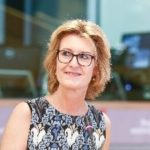
Sally Hardy began her career at the Economic and Social Research Council where she worked as a Scientific Officer in the Industry and Employment Committee dispensing funding to UK based social science academics. Sally moved to the Regional Studies Association where she has been CEO for just over 30 years. She has developed the organisation from a small, UK focused organisation into a global Association with an international footprint. Sally has become an advocate on publishing issues for the learned society sector speaking regularly at national conferences and events. She has advocated on different aspects of Open Access – for journals as well as for monographs and also around copy right reform and educational exceptions. She speaks on publishing practice and particularly on how to grow impact from publishing activity and on issues of learned society strategy.
Wednesday 14th September 2022, 13:30-14:00
Welcome and opening in dialogue: CEE on the move
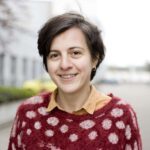
Lela Rekhviashvili is an early career researcher focusing on political-economy and urban geography with a regional expertise in post-socialist Eastern Europe and Eurasia, particularly South Caucasus and Central Asia. She has published widely on informal economic practices, urban transport and mobility, marketization and social embeddedness, contentious action and politics of public space. Her research increasingly focuses on contestations around infrastructure-led development and role of infrastructures in imagining and (re-)claiming socialist and capitalist modernities.
As an invited lecturer at Universities of Jena and Leipzig she teaches on ‘Regional Geography of Post-Soviet Eurasia’ and ‘De/constructing Europe: Multiple perspectives on Europeanisation’. She serves as one of the coordinators of research area ‘Self-Positioning of Eastern Europe in a New World Order’ at Leibniz Science Campus »Eastern Europe – Global Area« (EEGA).
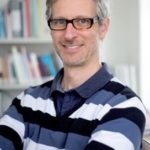
Thilo Lang is Head of Department and Deputy Director at the Leibniz Institute for Regional Geography (IfL) in Leipzig, Germany. His long-term research interest is about local and regional development in the context of polarisation and peripheralisation in Germany and CEE. More recently, his research focussed on issues of peripheral innovation in national, European and global contexts.
Wednesday 14th September 2022, 14:00-15:15
Opening Plenary: Old and new divides through global dynamics and geopolitical tensions – the trouble with global production networks
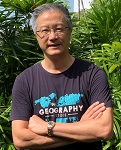
As an economic geographer by training and one of the world’s leading academic experts in global production networks and the global economy, Professor Yeung’s research interests cover broadly theories and the geography of transnational corporations, East Asian firms, and developmental states. He is the first geographer based in Asia to receive both the 2018 American Association of Geographers Distinguished Scholarship Honors “in recognition of his extraordinary scholarship and leadership in the discipline” and the UK’s Royal Geographical Society Murchison Award 2017 for “pioneering publications in the field of globalisation”. He was also a recipient of the inaugural NUS University Research Recognition Award 2018, NUS Outstanding Researcher Award (2008), and NUS Outstanding University Researcher Award (1998). In July 2014, Professor Yeung served as Principal Investigator of a US$4 million NUS strategic grant to establish the Global Production Networks Centre. He has published 6 monographs and 1 textbook (3 editions), 7 edited books, 105 journal articles, and 50 book chapters. His most recent books are Interconnected Worlds: Global Electronics and Production Networks in East Asia (Innovation and Technology in the World Economy Series, Stanford University Press, forthcoming June 2022), Strategic Coupling: East Asian Industrial Transformation in the New Global Economy (Cornell Studies in Political Economy Series, Cornell University Press, 2016), and Global Production Networks: Theorizing Economic Development in an Interconnected World (with Neil Coe, Oxford University Press, 2015). Professor Yeung is frequently invited to speak at international conferences, workshops, and symposiums. He has given invited presentations to major policy makers, such as Managing Director of International Monetary Fund (2017), DG REGIO of the European Commission (2018), and Commissioner of the Incheon Free Economic Zone in South Korea (2021). Within academia, Professor Yeung is among the top 20 most cited geographers in a recent November 2020 study of top 2% of world scientists, led by Stanford’s John Ioannidis, in 22 scientific fields and 176 sub-fields. His work has been cited by over 4,500 publications in Web of Science and over 22,500 times on Google Scholar. For two decades since 2001, Professor Yeung has been editor of two top journals in Geography – Economic Geography and Environment and Planning A. He is also past editor of Review of International Political Economy (2004-2013) and serves on the editorial boards of 19 other journals.
Thursday 15th September 2022, 09:00-10:15
Keynote lecture: Misperceptions of the East-West divide since 1989 – is it possible to bridge the gap?
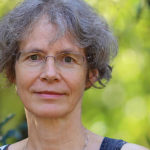
Dorothee Bohle is a professor of comparative politics at the social science department of the University of Vienna since October 2021. Previously she held a chair in social and political change at the Department of Political and Social Sciences of the European University Institute, Florence. Her research is at the intersection of comparative politics and political economy with a special focus on East Central Europe. She is the author of Capitalist Diversity on Europe’s Periphery (Cornell University Press 2012, together with Béla Greskovits), and of Europe’s New Periphery: Poland’s Transformation and Transnational Integration (in German, Münster 2002). Her publications have also appeared in Comparative Politics, Studies in Comparative International Development, West European Politics, Journal of Democracy, European Journal of Sociology, and Review of International Political Economy, among others. Her current work looks at the responses to the Great Recession in West and East European peripheral countries. She is especially interested in how private and public indebtedness has shaped policy and political responses.

Lela Rekhviashvili is an early career researcher focusing on political-economy and urban geography with a regional expertise in post-socialist Eastern Europe and Eurasia, particularly South Caucasus and Central Asia. She has published widely on informal economic practices, urban transport and mobility, marketization and social embeddedness, contentious action and politics of public space. Her research increasingly focuses on contestations around infrastructure-led development and role of infrastructures in imagining and (re-)claiming socialist and capitalist modernities.
As an invited lecturer at Universities of Jena and Leipzig she teaches on ‘Regional Geography of Post-Soviet Eurasia’ and ‘De/constructing Europe: Multiple perspectives on Europeanisation’. She serves as one of the coordinators of research area ‘Self-Positioning of Eastern Europe in a New World Order’ at Leibniz Science Campus »Eastern Europe – Global Area« (EEGA).
Thursday 15th September 2022, 15:30-17:00
Plenary debate: Post-mining regeneration and the afterlife of one the GDR’s biggest industrial complexes, the Wismut:
Representatives from business, politics and research discuss the company’s transformation from uranium mining to restoration and environmental clean-up of former mining areas

Franziska Naether is an Egyptologist and Papyrologist with a focus on religion, magic and literature in classical Egyptian, Graeco-Roman, and Late Antique Periods with deep professional experience in Digital Humanities and museum curation. She has conducted research and teaching mainly in Germany, the US, and South Africa. Currently, she is working at the Saxon Academy of Science and Humanities in Leipzig in the KompetenzwerkD, the Saxon Research Center and Competence Network for Digital Humanities and Cultural Heritage, preparing her habilitation thesis on Egyptian cult practices for publication and wrapping up the “Digital Rosetta Stone Project”.

Prof. Dr Sebastian Lentz is Director of the Leibniz Institute for Regional Geography (IfL) in Leipzig and Professor of Regional Geography at the University of Leipzig. In 2018, he was appointed Vice President of the Leibniz Association. He is a full member of the „Akademie der Wissenschaften zu Leipzig (SAW)“ and has been spokesperson for the Leibniz Science Campus “Eastern Europe – Global Area (EEGA)” since 2016. His research focuses in particular on the regional geography of Europe and the successor states of the Soviet Union, as well as on the communication of this content. In a research project in cooperation with the Saxon Academy of Sciences in Leipzig, the IfL has been working on the “Wismut heritage” for the last two years and has developed content and methodological concepts to build a digital research portal “Wismut heritage”, which collects materials on the topic and documents the current state of research.
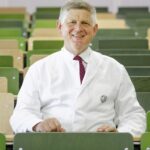
Prof. Dr. med. Andreas Hochhaus is the Director of the Department of Hematology and Oncology and the Director of the UniversityTumorCenter Jena, Germany.
Dr. Johannes Staemmler is head of the research group “Regional Sustainability Transformations” and speaker for the area “Democracy and Sustainability”. 2018 to 2022 he lead the BMBF-project “Social Transformation and Responsive Policy advice in Lusatia”.
He studied International Relations at the University of Technology Dresden and Public Policy at the Hertie School of Governance in Berlin, Germany, where he received a Ph.D. for his work on civil society in shrinking cities.
His previous work emphasized research on and participation in complex transition scenarios, especially within organizations and regional contexts. At the Leibniz-Gemeinschaft, he advised the president on strategy issues. For the Stifterverband, he developed at network instrument to connect local government to research institutions. For the German Mining Museum Bochum, he advises the German government and several Länder on how to deal with the scientifically and culturally important remains of the Soviet-German uranium mining in the GDR. He is co-founder of “Third Generation East”.
Friday 16th September 2022, 09:00-10:30
Plenary debate in collaboration with the Leipzig Institute for Societal Cohesion: Multi-scalar socio-political divides, rising populism and new agendas for societal cohesion
Friday 16th September 2022, 15:30-17:00
Closing Plenary: Bridging old and new divides – what can we learn from global dynamics and regional transformations in CEE?
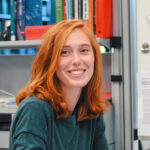
Vera Smirnova is an assistant professor in Geography and Political Science at Kansas State University, US. Since completing her Ph.D. at the School of Public and International Affairs at Virginia Tech in 2018, she was a Postdoctoral fellow at the Higher School of Economics in Moscow, Russia. Her work falls at the intersection of political geography, urban and territorial politics and explores the relations between land and power and their various manifestations in pre-and post-Soviet Russia. In particular, she examines how rights to land ownership and other modes of the appropriation of space are negotiated and how territorial policies are performed through formal and informal technologies of power. Through this lens, she researched Russian land privatization reforms, as well as perceptions of territorial integrity in Russian political and geographic thought. In addition to teaching post-Soviet politics and political geography at Kansas State University, Vera Smirnova is a board member of the Eurasian Geography Specialty Group at the American Association of Geographers and an adjunct researcher at the Center for Russian, East European and Eurasian Studies at the University of Kansas.
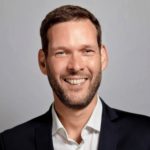
Johannes Glückler leads the Economic Geography Group. He is Professor of Economic and Social Geography and Fellow of the Marsilius Center of Advanced Studies at Heidelberg University. After his studies at the universities of Würzburg, Salamanca and the London School of Economics, he received his doctorate from the University of Frankfurt in 2004. Prior to his current position he was a professor of economic geography at the Catholic University of Eichstätt-Ingolstadt, Bavaria.
His research focuses on economic geography, organization studies, network theory and the service industries. He is a founding board member of the German Society for Network Research (DGNet), and co-founder of the Master of Governance of Risks and Resources at the Heidelberg Center for Latin America in Santiago de Chile. Johannes Glückler is the new editor of the Springer book series Knowledge & Space, and co-editor of the series Human Geography (Springer) and Economic Geography (LIT). He also serves on several editorial boards of the Journal of Economic Geography, Zeitschrift für Wirtschaftsgeographie and Raumforschung und Raumordnung.
In addition to basic research activities, he has worked as a consultant for the OECD, the Bavarian Ministry of Economic Affairs, the State Rectors’ Conference Baden-Württemberg, several chambers of commerce and industry associations, corporations and civil society organizations. Johannes Glückler teaches economic geography, qualitative methods of empirical social research and methods of social network analysis. As part of the European ERASMUS Teaching Mobility program, he is a regular guest professor at the University of Salamanca.
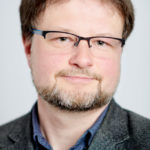
Maciej Smetkowski – Ph.D. in earth sciences, specialty socio-economic geography, associate professor at the Centre for European Regional and Local Studies (EUROREG), University of Warsaw. Chairman of the Polish Section of the Regional Studies Association. Author of over 100 publications on metropolisation process, instruments of regional policy and cross-border co-operation including books “Regional Development and Regional Policy in Central and Eastern European Countries in the period of transformation and globalisation” (in Polish) and “The European Metropolises and Their Regions: from Economic Landscape to Metropolitan Networks”. He has extensive experience in evaluation of public policies. He has been involved in number of research projects carried-out within research framework programmes of the EU including HORIZON 2020 as well as ESPON Programme (European Spatial Planning Observatory Network).
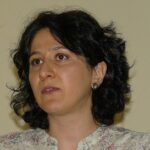
Petya Slavova holds a PhD in Political Science from the Free University of Brussels and is currently an Associate Professor at Sofia University St. Kliment Ohridski, where she teaches Sociology of Work and Professions and Research Methods in Social Sciences. In her nearly twenty years of research experience, Petya has analysed the post-socialist transformation of urban space and rural areas in Bulgaria, focusing on various key social actors such as architects and lawyers, organic farmers, agricultural innovators and rural entrepreneurs. The results of these studies have been published in various journals such as International Journal of Heritage Studies, Sociologia Ruralis, Revue d’études comparatives East-Ouest, Perspectives on European Politics and Societies and others. Petya has been involved in numerous projects funded by various European Commission Science and Innovation Framework Programmes (IMPRESA, LIAISON, COCOREADO, EFUA) and by ESPON programme (ESCAPE). She has also been awarded by various research institutions such as Ecole d’études en sciences sociales, Center for Advanced Study – Sofia to conduct research activities.

Thilo Lang is Head of Department and Deputy Director at the Leibniz Institute for Regional Geography (IfL) in Leipzig, Germany. His long-term research interest is about local and regional development in the context of polarisation and peripheralisation in Germany and CEE. More recently, his research focussed on issues of peripheral innovation in national, European and global contexts.
